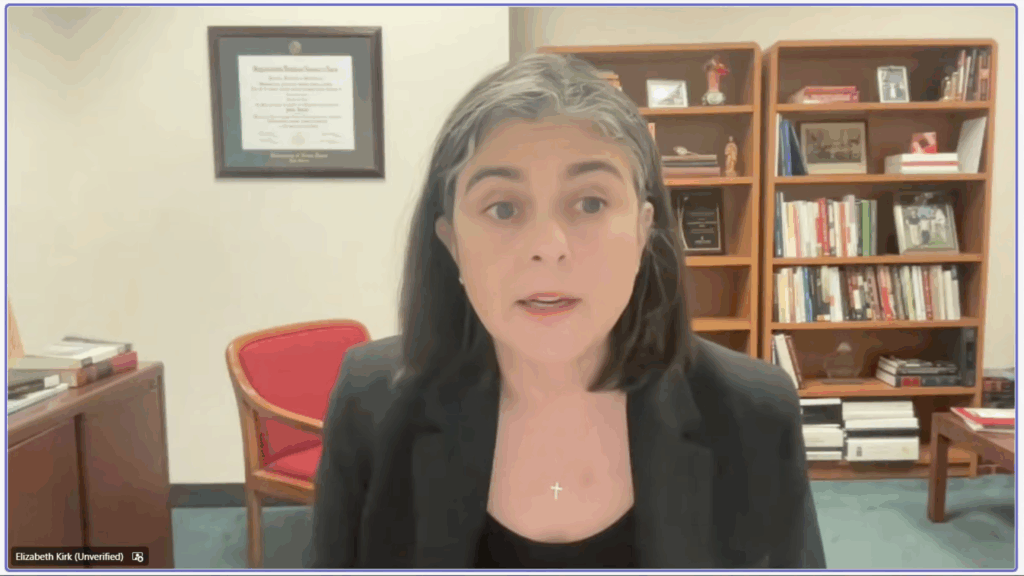Freedom of Speech and the Truth about Life
by Kevin Petrisek
On Tuesday, March 20, the Supreme Court heard oral argument in NIFLA v. Becerra. The legal defense group working on the case, Alliance Defending Freedom, summarized this case well. It stated that the California law at issue forces pro-life pregnancy help centers to provide free advertising for the abortion industry. The law requires licensed medical centers that offer free, pro-life help to pregnant women to post a disclosure saying that California provides free or low-cost abortion and contraception services. The disclosure must also include a phone number for a county office that refers women to Planned Parenthood and other abortionists.
The outcome in the NIFLA case will turn on free speech principles. Our nation is fortunate to have a First Amendment to our constitution that sets a high bar for any law that abridges that amendment. French citizens are not so blessed. In 2014, a video was released in connection with World Down Syndrome Day. The video, titled “Dear Future Mom,” showed happy children with Down Syndrome speaking to their own mothers and future mothers assuring them that they are happy, can learn and become independent, and can live a life like any other child. In 2016, France banned this video from French television saying that it could be upsetting for women who have aborted children with Down Syndrome. The Council of State ruled that the video could “disturb the conscience of women who, in accordance with the law, have made personal life choices.”
After this decision by the French court, the ban was appealed by a research charity called the Jerome Lejeune Foundation. Their president, Jean-Marie Le Mene, accused judges of hiding happy Down syndrome children from view, and said, “It put the destruction and protection of life on an equal level as if the two acts had the same value. Indeed, experience shows that women who have given birth to a child with a disability do not regret having chosen life.”
George Will, writing in The Washington Post last week, explains that there is now prenatal screening available earlier in pregnancy that can tell if a child has Down Syndrome in utero. After the screening, the couple can decide if they would like to terminate the pregnancy and try again. In Iceland, the Down Syndrome elimination rate is almost 100 percent. Only three babies with Down Syndrome were born in 2009 in a country of about 340,000 people.
The United Kingdom, with a much larger population, has about 40,000 Down Syndrome citizens, many of whom were conceived before the technology existed to find out if your baby had Down Syndrome in utero. There are about 750 babies with Down Syndrome born each year in the United Kingdom, but 90 percent of women who find out their child has Down Syndrome have an abortion. In France, about 77 percent of women in this situation have an abortion. This underscores the importance of “Dear Future Mom” in France as a vehicle that could save hundreds, if not thousands, of lives by educating expectant mothers that children with Down Syndrome are happy and can live a great life.
Sadly, France has no First Amendment that could block the banning of a video of this nature. The United States, however, does have a First Amendment that protects the freedom of religion, speech, and press. In the NIFLA case, the petitioner pregnancy help centers represented by the National Institute of Family and Life Advocates are entreating the Supreme Court to apply that First Amendment to California’s demands.
The mission of these pro-life pregnancy centers is to provide hope and help to women who are facing unplanned pregnancy. They give women the facts about their options. They provide services before, during, and after the pregnancy. Generally, women come into these clinics asking two questions: Am I pregnant? What am I going to do about it? A pro-life pregnancy center gives women hope that there is someone there who can aid during and even after the pregnancy.
The Alliance for Defending Freedom has a video explaining the centers’ mission. They talk to the women who come into their office and allow them to express themselves, while reviewing their options. This encourages them to connect on a deeper level and to understand that there are people who are there for them and care for them.
The CEO of Alliance Defending Freedom says, “What they are trying to do is silence the ability of people who advocate for the pro-life position to be able to freely speak their message. And that’s what we’re debating in the Supreme Court of the United States. They’re not trying to do anything other than facilitate people choosing abortion and forcing pro-lifers to be the facilitators for that message.”
Reports from this week’s oral argument suggest that a majority of the Court may be inclined to agree with NIFLA and the centers. That is good news for the unborn and for the millions of Americans who sacrifice to support the centers and provide them time, money, and physical resources. A decision by the Supreme Court is expected this summer.
Kevin Petrisek is a research intern for Susan B. Anthony List.
References



























